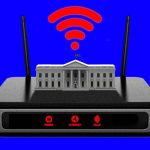The United States Senate recently passed the National Defense Authorization Act (NDAA), a critical piece of legislation that dictates the nation’s defense budget and policies. While typically a bipartisan effort, this year’s NDAA carries significant controversy due to its expansion of government surveillance powers under Section 702 of the Foreign Intelligence Surveillance Act (FISA). Despite bipartisan concerns regarding potential abuses and the lack of clarity regarding the scope of the expansion, the bill passed with a comfortable majority and is awaiting the President’s signature. This expansion marks a significant shift in the balance between national security and individual privacy, raising alarm bells among privacy advocates and legal experts.
The heart of the controversy lies within the redefinition of “electronic communication service provider.” Historically, this term encompassed traditional telecommunication companies like phone and email providers. The amended NDAA, however, broadens this definition to an ambiguous extent, leaving significant uncertainty about which entities now fall under the government’s surveillance purview. This ambiguity has sparked widespread concern that the revised definition could encompass a far wider range of businesses, including those that manage data centers and potentially even commercial landlords with access to building wiring. This dramatic expansion has the potential to expose the communications of American citizens to government surveillance in ways never before envisioned.
Adding fuel to the fire is the classified nature of the 702 program. While assumed to be aimed at accessing communications stored on servers within US data centers, the lack of transparency surrounding the program’s specifics makes it impossible to definitively ascertain the true scope of the expansion. This secrecy effectively prevents meaningful public discourse and oversight, hindering any attempts to establish safeguards against potential abuses of power. The clandestine nature of the program, coupled with the vague language of the amended definition, creates a potent combination that threatens to erode privacy protections.
Experts in surveillance law have voiced serious reservations about the potential ramifications of this expansion. They warn that the blurred lines surrounding the definition of “electronic communication service provider” could inadvertently expose vast amounts of domestic communications to government scrutiny. The concern is that the government, under the auspices of targeting foreign communications, could inadvertently collect vast amounts of domestic data, thus eroding the privacy rights of American citizens. This lack of clarity and transparency creates a chilling effect on free expression and undermines the public’s trust in the government’s commitment to protecting civil liberties.
The swift passage of the NDAA, despite these concerns, underscores the political realities surrounding national security legislation. While some lawmakers attempted to introduce amendments aimed at clarifying the vague language and mitigating potential abuses, these efforts ultimately proved unsuccessful. The political pressure to pass the NDAA, coupled with the inherent complexities of balancing national security and individual privacy, resulted in a compromise that prioritizes surveillance expansion over clearly defined safeguards. This outcome serves as a stark reminder of the challenges inherent in protecting civil liberties in the face of national security concerns.
The passage of the NDAA with the expanded surveillance powers under Section 702 of FISA marks a significant turning point in the ongoing debate between national security and individual privacy. The lack of clarity surrounding the scope of the expansion, coupled with the secrecy inherent in the 702 program, raises serious concerns about potential abuses and the erosion of civil liberties. The ease with which this expansion was passed, despite bipartisan concerns, highlights the challenges of effectively safeguarding privacy rights in the face of national security imperatives. This situation necessitates ongoing vigilance and advocacy to ensure that the government’s pursuit of security does not come at the expense of fundamental freedoms.



